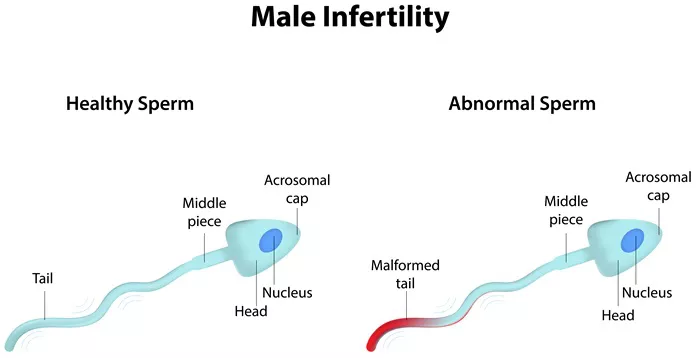Researchers are on the verge of developing a groundbreaking blood test capable of identifying male infertility without the need for traditional semen analysis. Utilizing an artificial intelligence (AI) system, the test predicts infertility risk with approximately 74% accuracy by analyzing hormone levels in blood samples linked to sperm production.
Remarkably, the AI model demonstrates 100% accuracy in predicting a severe form of infertility known as non-obstructive azoospermia, where no sperm is present in the semen.
Prof. Allan Pacey from the University of Manchester highlights the potential advantages of this first-stage diagnostic approach, which could be conducted during routine GP visits, eliminating the need for specialized laboratory facilities. “The idea that a first-stage diagnosis could be done from a blood sample taken by the GP does offer some advantages,” he stated.
Lead developer Hideyuki Kobayashi, an associate professor at Toho University School of Medicine in Japan, emphasizes that this method is intended as an initial screening tool and not a substitute for semen testing. He envisions that clinical laboratories and health check-up centers could adopt the AI model to enhance accessibility for male infertility testing.
Infertility affects approximately 7% of men globally, with about half of infertility issues in heterosexual couples attributed to male factors, according to the World Health Organization (WHO). Current semen analysis, while standard, is often limited to specialized labs and can be time-consuming.
To explore the feasibility of using AI for quicker diagnostics, researchers analyzed data from nearly 4,000 men who underwent both semen and hormone testing for infertility between 2011 and 2020. The AI tool was subsequently validated using data from 354 men collected from 2021 to 2022.
Prof. Pacey commended the study for effectively employing AI to identify infertile men but stressed the need for a more user-friendly approach for practical application. He noted, “One of the first steps in diagnosing male infertility is the analysis of a semen sample in a specialist laboratory,” which often requires time off work and additional appointments.
Ultimately, while the AI prediction model represents a significant advancement, its successful implementation will depend on simplifying the process into an accessible format for general practitioners. Once confirmed in larger studies, this innovation could streamline infertility testing and enhance overall patient experience.
Related topics:

























